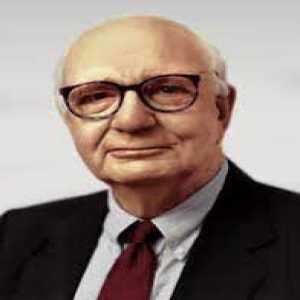Paul Adolph Volcker Jr. (September 5, 1927 – December 8, 2019) was an American economist who served as the 12th chairman of the Federal Reserve from 1979 to 1987. During his tenure as chairman, Volcker was widely credited with having ended the high levels of inflation seen in the United States throughout the 1970s and early 1980s. He previously served as the president of the Federal Reserve Bank of New York from 1975 to 1979.
President Jimmy Carter nominated him to succeed G. William Miller as Fed chairman and President Ronald Reagan renominated him once. Volcker did not seek a third term at the Fed and was succeeded by Alan Greenspan. After his retirement from the Board, he chaired the Economic Recovery Advisory Board under President Barack Obama from 2009 to 2011 during the subprime mortgage crisis.
Early life and education
Volcker was born in Cape May, New Jersey, the son of Alma Louise (née Klippel, 1892–1990) and Paul Adolph Volcker (1889–1960). All his grandparents were of German origin. Volcker grew up in Teaneck, New Jersey, where his father was the township's first municipal manager. Paul Sr. thrived in the role for 20 years as he improved the burgeoning town's economic stability and the local government's effectiveness. Paul Jr. had four older sisters: Ruth (1916–1991), Louise (1918–1966), Elinor (1922–1923) and Virginia Streitfeld (1924–2011). As a child, he attended his mother's Lutheran church, while his father went to an Episcopal church. Volcker graduated from Teaneck High School in 1945, where he participated in several student groups and impressed his peers and teachers with his knowledge of politics.
Volcker attended Princeton University as an undergraduate student and graduated with highest honors from the Woodrow Wilson School of Public and International Affairs (now the Princeton School of Public and International Affairs) in 1949. In his senior thesis, titled "The Problems of Federal Reserve Policy since World War II", Volcker criticized the Federal Reserve's post-WWII policies for failing to curb inflationary pressures, writing, "a swollen money supply presented a grave inflationary threat to the economy. There was a need to bring this money supply under control if the disastrous effects of a sharp price rise were to be avoided." Following a summer as a research assistant at the Federal Reserve Bank of New York, he moved to Harvard University to earn an M.A. in political economy from its Graduate School of Arts and Sciences and Graduate School of Public Administration. He worked a second summer as a New York Fed research assistant before graduating in 1951. After Harvard, Volcker attended the London School of Economics from 1951 to 1952 as a Rotary Foundation Ambassadorial Fellow under Rotary's Ambassadorial Scholarships program.
